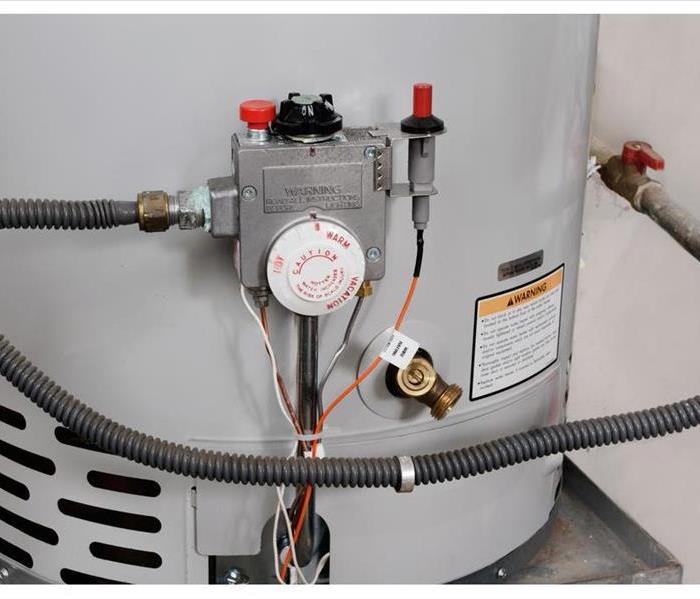Why Water Heaters Make Noise
1/11/2021 (Permalink)
Why Water Heaters Make Noise
Determining what's causing your water heater in Croyden, PA, to make noise can be difficult. Understanding the potential causes and what sounds they make can help you locate the problem more easily. Some of the sounds your heater can make are:
- Knocking
- Screeching
- Popping and rumbling
- Humming
- Tapping
Water Hammering
Turning water on and off can cause pipes to hit the wall, making a knocking sound. This is called water hammering. A water hammer arrestor can protect your walls and stop the noise.
Partially Closed Valve
Water that is having to squeeze through a small opening can make a screeching noise. This occurs when a valve is partially closed. Checking to make sure all valves are fully opened will solve this problem.
Sediment
An older tank may develop a buildup of sediment. Sediment at the bottom of water heater can make a lot of noise when heating. This is because water trapped under the buildup is working its way to the surface. It can also make a rumbling sound as debris moves around. This can be solved with a water heater flush to clean out the buildup.
Electric Heater Element
The elements in electric heaters can produce a humming noise as they move around in the tank. Tightening the element will reduce vibrations and stop the sound.
Heat Traps
Heat traps directly the flow of water, preventing it from going the wrong direction. It is normal for them to make a tapping sound. If the sound is bothersome, you may be able to replace it with another type of valve that will be quieter.
Paying close attention to the sounds your water heater is making can be a big help in figuring out the problem. Be sure to check for water hammering, partially closed valves, sediment, a loose electric heater element, and heat traps. Once you discover what's causing the problem, stopping the noise should be easy.






 24/7 Emergency Service
24/7 Emergency Service
